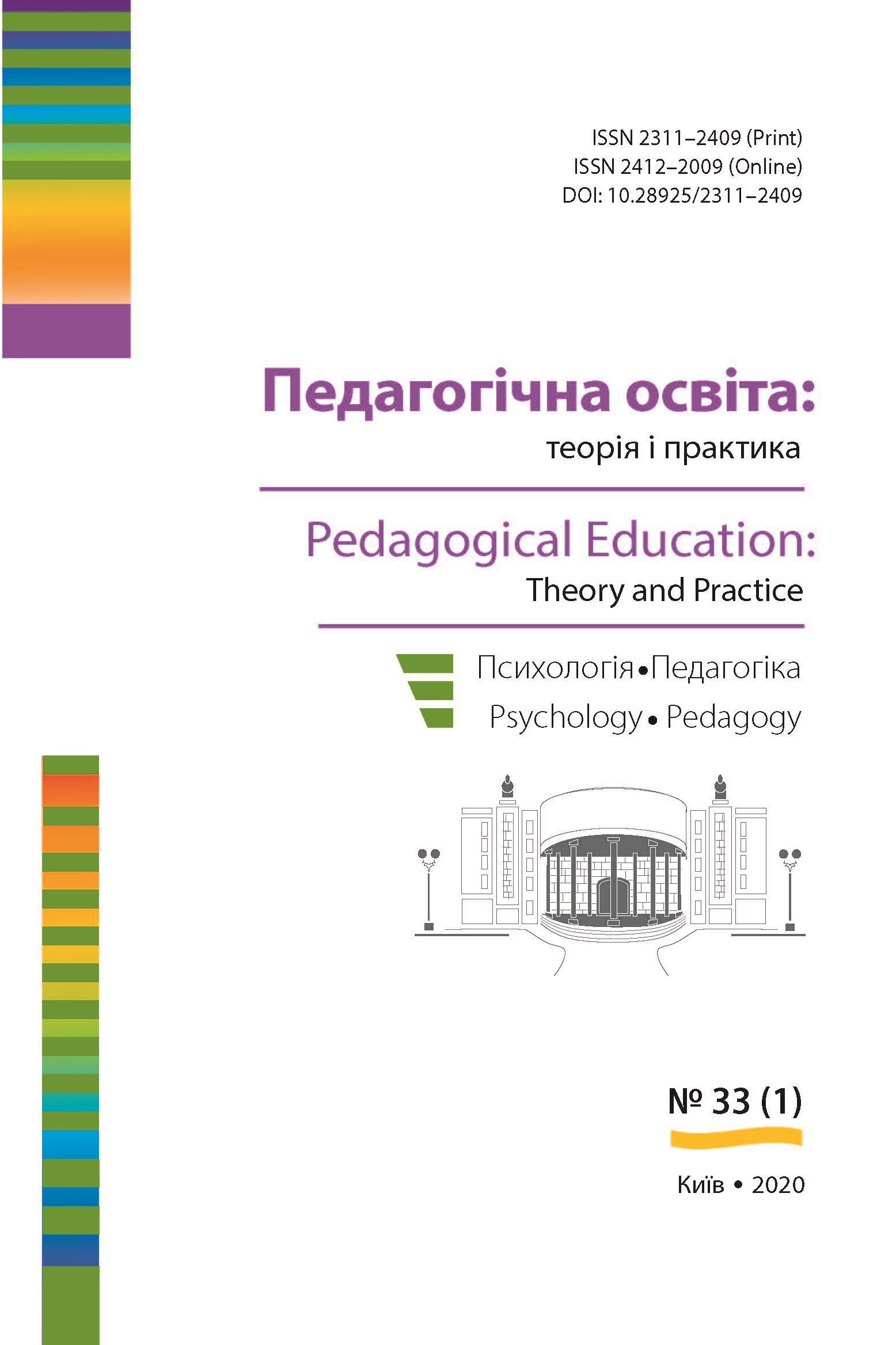ВИКОРИСТАННЯ ІНТЕРАКТИВНИХ МЕТОДІВ НАВЧАННЯ В ПРОЦЕСІ ПІДГОТОВКИ МАЙБУТНІХ ПЕДАГОГІВ
DOI:
https://doi.org/10.28925/2311-2409.2020.33.9Анотація
У статті висвітлено сутність інтерактивних методів навчання та аргументовано переваги їх застосування в освітньому процесі закладів вищої освіти. Виявлено особливості використання інтерактивних методів навчання у процесі підготовки майбутніх педагогів. Подано характеристику окремих методів інтерактивного навчання, розкрито значення їх використання в процесі формування особистісних та професійних якостей майбутніх педагогів.
Завантаження
Посилання
Активні та інтерактивні методи навчання / уклад. О.С. Кравчина. Київ : УІ ППОАН України, 1999. 123 с.
Підласий І.П. Практична педагогіка або три технології : інтерактивний підручник для педагогів ринкової системи освіти. К.: Слово, 2004. 616 с.
Пометун О.І. Технологія інтерактивного навчання як інноваційне педагогічне явище. Рідна Школа. Київ: Рідна Школа, 2007. № 5. С. 46—49.
Cисоєва С.О. Інтерактивне навчання дорослих у системі післядипломної педагогічної освіти. Наукові праці. Педагогіка. Випуск 146. том 158. Миколаїв, 2011. С. 5—10.
Скрипник М.І. Інтерактивне навчання: основні поняття. Ігри дорослих. Інтерактивні методи навчання. Бібліотека. Київ : Ред. загальнопед. газет, 2005. С. 30—44.
REFERENCES
Aktyvni ta interaktyvni metody navchannia [Active and interactive teaching methods] / uklad. O.S. Kravchyna. Kyi : UI PPOAN Ukrainy, 1999. 123 s. (in Ukrainian)
Pidlasy, I.P. (2004). Praktychna pedahohika abo try tekhnolohii [Practical pedagogy or three technologies]: interaktyvnyi pidruchnyk dlia pedahohiv rynkovoi systemy osvity. K.: Slovo, 2004. 616 s. (in Ukrainian)
Pometun, O.I. (2007). Tekhnolohiia interaktyvnoho navchannia yak innovatsiine pedahohichne yavyshche [Interactive learning technology as an innovative pedagogical phenomenon.]. Ridna Shkola. Kyiv : Ridna Shkola, 2007. № 5. S. 46-49. (in Ukrainian)
Cysoieva, S.O. (2011). Interaktyvne navchannia doroslykh u systemi pisliadyplomnoi pedahohichnoi osvity [Interactive adult learning in the system of postgraduate pedagogical education]. Naukovi pratsi. Pedahohika. Vypusk 146. tom 158. Mykolaiv, 2011. S. 5—10. (in Ukrainian)
Skrypnyk, M.I. Interaktyvne navchannia: osnovni poniattia [Interactive learning: basic concepts]. Ihry doroslykh. Interaktyvni metody navchannia. Biblioteka. Kyiv: Red. zahalnoped. hazet, 2005. S. 30—44. (in Ukrainian)
Опубліковано
Версії
- 2020-09-22 (2)
- 2020-06-06 (1)

